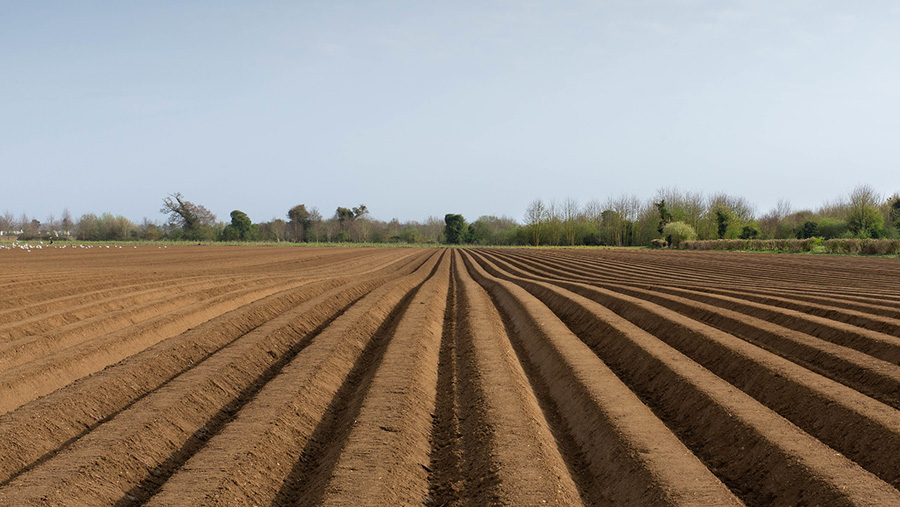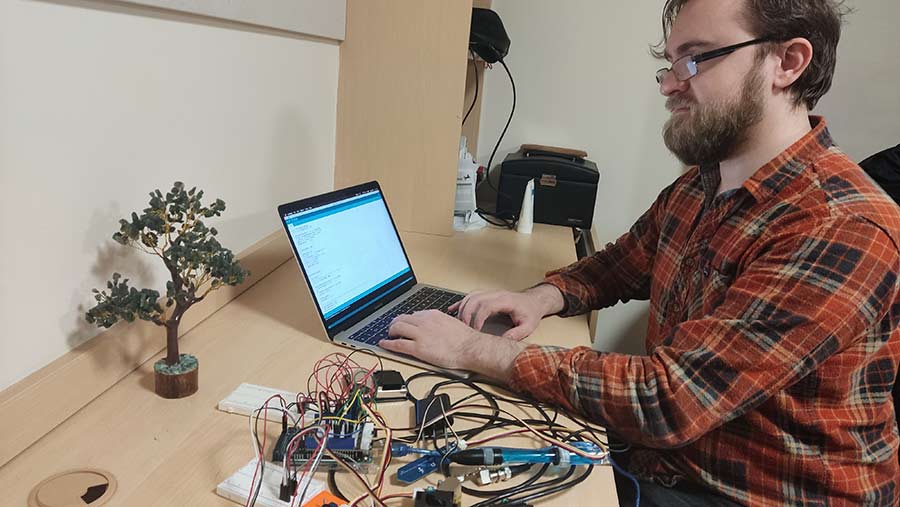New research develops instant handheld soil analysis kit
 © Tim Scrivener
© Tim Scrivener A handheld soil test sensor that will give farmers and agronomists instant results in the field is being developed by two software companies for eventual use on UK farms.
Instead of samples being sent away for analysis, the farmer can “point and shoot” with the device – which uses molecular sensing (MS) and artificial intelligence (AI) – and identify the nitrogen, phosphorous and potassium levels, and measure organic matter.
See also: Top tips to achieve more resilient and sustainable soils
While not as accurate as a lab-based mass spectrometer tool, the technology will be significantly cheaper and will deliver farmers real-time information on the state of their soil, direct to their mobile phone.
Developers say this opens the door for smaller operators who want a fast way of making informed decisions about their soil.
The MS-AI sensor will send the field data to a central computer, which will analyse the readings before sending the results back to the farmer.
The project is led by Imran Siddiqui, managing director of Attribes Solutions, a software development company that specialises in helping firms take emerging technologies to market.
Mr Siddiqui is supported by Steve Taylor, founder of spectrometry company Q-Technologies and head of the Mass Spectrometry and Instrumentation Research Group at the University of Liverpool.

Engineers at Q Technologies are working on a prototype © Q Technologies
Government funding of £262,000 from Innovate UK’s Smart programme has made the project possible.
The grant will fund a 15-month project to create a prototype, together with the software that will power the real-time analysis, ready to begin field testing.
Mr Siddiqui said the tool could be game-changing for soil analysis.
“This is a fantastic example of an area where condensed physical technology paired with cloud computing can answer a modern problem, and liberate farmers from the time-consuming analysis that has been the mainstay of the industry for decades,” said Mr Siddiqui.
Prof Taylor added: “Over the next 15 months, we’ll be going from a bench pre-prototype to something you can put in a van or leave in a tractor.
“That’s quite a big step, but this time next year, we should be heading into farmers’ fields with a robust, working prototype, pressing buttons and getting results.”
Grant company Catax has helped secure funding for the project.

